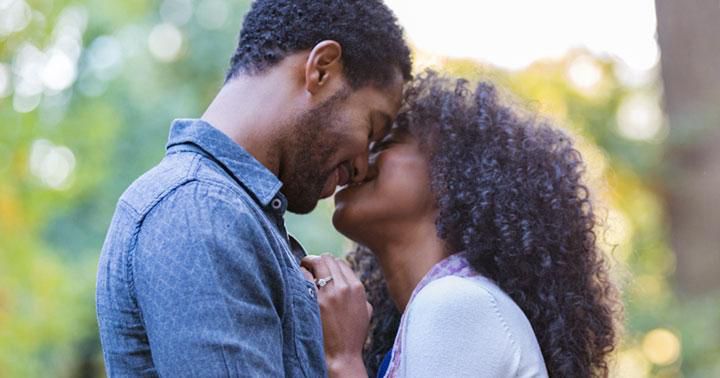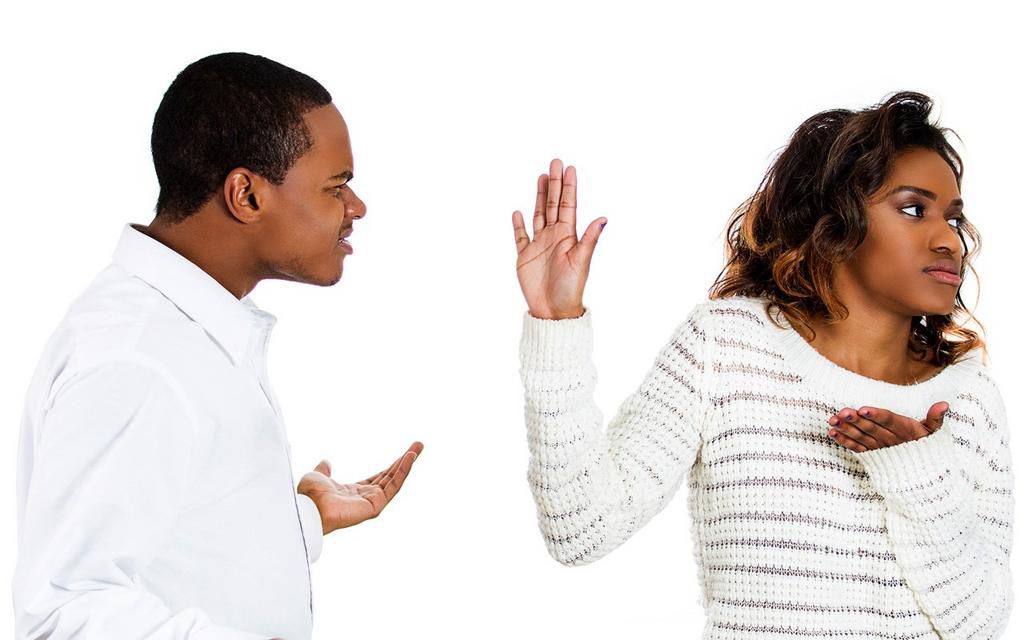Here's the problem with over-using words of endearment with people you are not dating
![Don't let the routine of daily family life get between your and the romance you share with your boo [Credit: PeopleImages/Getty Images]](https://image.api.sportal365.com/process/smp-images-production/pulse.com.gh/23072024/30eebd44-1f95-4bed-8356-f751732eda9d?operations=autocrop(700:467))
Just the other day I had to get some outsiders opinion on something and for this purpose, a friend links me up with one sweet-sounding babe like that.
So I call this lady and ask her few questions. By the time I was ending the call after eight minutes or thereabouts, I naturally thank her for being helpful.
She responds in her tender, almost-seductive voice. "You're welcome, dearie," she says, and as innocent and harmless as that might sound, it really had me triggered.
![The physical appearance is the only point of attraction. One thing that carries a relationship far is the level of emotional maturity present in both partners. [Credit: Getty Images]](https://image.api.sportal365.com/process/smp-images-production/pulse.com.gh/23072024/c6d30c21-83e0-4b7c-9f01-7a1849291abb)
As an isolated case, being called 'dearie' just one time by an outsider who has only answered your questions for eight minutes and has never seen your face is not a problem. However, on a grander scale and as related to romantic relationships, misuse of words of endearment is actually something worth talking about.
Think about it; you must know three, four, maybe more people who punctuate almost every sentence with affectionate words such as 'love', 'baby', 'sweetheart', 'lovey,' 'darling' and so on and so annoyingly forth.

It does not matter that these are people they just met and it also doesn't seem to matter that these people actually have partners. Not to sound stuck up or to act as a wet towel, I sincerely think words of endearment should not be thrown around anyhow. Doing this dwindles the importance and value those words are supposed to have.
They become so commonplace that their purport is lost on those to whom they should mean something, those who should feel good hearing them.
Words of endearment are meant to make you feel good. They are affectionate words that convey feelings; and they are supposed to ascribe some sort of special feeling on whoever you say them to.Friends can call each other with some endearing words, parents use words of endearment for their kids and more relevantly, partners use cute, specially-created words for each other.

Generalising these endearing names and titles belittles their special nature, downplays the feelings attached to them and could cause problems in your relationship/marriage.
So you affectionately call your boyfriend 'Hunk' and he likes it. It makes him feel manly and attached to you in some unique, cutesy way.
Now imagine him hearing you call every other guy by that name and with the same amount of honey in your inflected voice as you do so.
The significance of that name as bonding tool in that your relationship becomes reduced, if not completely lost if you keep up the habit.
There might also be questions to answer, depending on how jealous the man is and how much value has been attached to that endearing word.
Similarly, imagine your boyfriend calling many other babes 'Angel', when you thought that was a name you felt he adoringly set apart just for you.
![If you want a relationship that not sexually one sided, you should know how to initiate sex with your partner [Credit: Shutterstock]](https://image.api.sportal365.com/process/smp-images-production/pulse.com.gh/23072024/691ed9be-3700-4a1e-9221-61c93c26becc)
It is also, in a way, a matter of respect for your partner.
You can't be in a relationship and continue giving every Cynthia, Amaka and Damilola you come across endearing names. Same thing applies to ladies, who seem to even be guiltier of this behaviour. You shouldn’t be using those special, endearing words with other men.
Kill that habit even if your partner hasn't been complaining.
Misappropriating these terms of endearment will not necessarily cause problems or steer your relationship into ruin; nonetheless, since you now know better, you need to do better.
)
)
)
)
)
![When an ex refuses to go out of the picture [Credit: Ad Age]](https://image.api.sportal365.com/process/smp-images-production/pulse.com.gh/05082024/62affb60-386c-44f2-a64f-49820683dc6b?operations=autocrop(236:157))
![Sometimes, take the lead instead of waiting for your man to initiate sex. [Credit: ThinkstockPhotos]](https://image.api.sportal365.com/process/smp-images-production/pulse.com.gh/23072024/7d504200-e76b-46de-a4eb-424a7e3e657b?operations=autocrop(236:157))
![Long distance relationships are feared because of the physical intimacy it yanks from partners [Credit: Shutterstock]](https://image.api.sportal365.com/process/smp-images-production/pulse.com.gh/02082024/f5d3e629-ab4a-4c74-b84a-d6a0b7f25792?operations=autocrop(236:157))
)
![How to keep the intimacy in a long distance relationship [Credit Sohbethattixx]](https://image.api.sportal365.com/process/smp-images-production/pulse.com.gh/01082024/39638d6c-aff0-4cdc-a71b-fe81b6e5a48b?operations=autocrop(236:157))
)
)
)
)
)
)